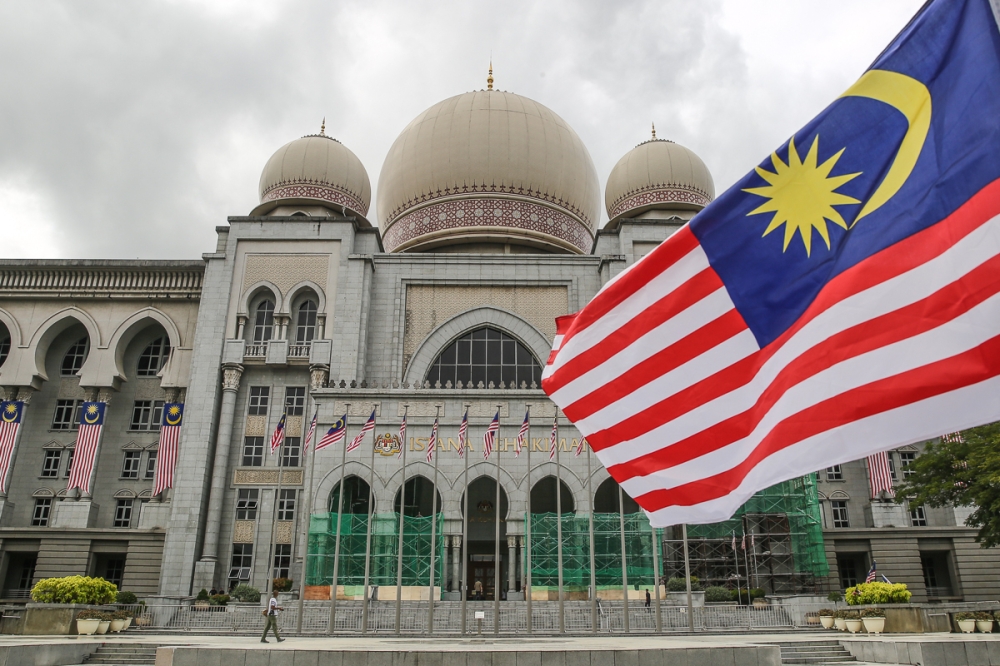JANUARY 7 — The Court of Appeal on Monday allowed Datuk Seri Najib Razak’s appeal against the dismissal of his bid to compel the Malaysian government to produce a purported “supplementary order” from the previous Yang di-Pertuan Agong that would see him serve the remainder of his jail sentence under “house arrest”.
The three judges who sat on the Bench were split in their decision, with Datuk Azhahari Kamal Ramli and Datuk Seri Mohd Firuz Jaffril ruling in favour of Najib while Datuk Azizah Nawawi, who chaired the panel, dissented.
The majority decision reminds me of the appellate court’s decision with a different panel of judges in Attorney General of Malaysia v Sabah Law Society (State Government of Sabah, intervenor) [2024] 4 MLJ 436.
In that case, the High Court had allowed the application by Sabah Law Society (SLS) for leave to commence judicial review against the Federal Government. The judicial review application concerned the special grant provided for Sabah under Article 112C and Section 2 of Part IV of the Tenth Schedule of the Federal Constitution.
The special grant is a matter that was agreed to by all the parties when Sabah, Sarawak and Singapore formed Malaysia by signing the Malaysia Agreement 1963 on July 9, 1963. It is subject to review under Article 112D of the Federal Constitution. Clauses (3) and (4) particularly provide that the special grant to Sabah (and Sarawak) are subject to review at specified times by the Federal Government of the State Government of Sabah (and Sarawak).
In the leave application, the SLS argued that its judicial review application was only aimed at compelling the Federal Government to perform its constitutional duty under Article 112C, 112D and the Tenth Schedule of the Federal Constitution — that is, to conduct a review during the period from 1974 to 2021 pursuant to Article 112D of the Constitution and to pay Sabah’s 40 per cent entitlement for the annual payments for the said period.
Like the orders sought by Najib Razak in his application for leave to commence judicial review, the order to compel the Federal Government to perform its constitutional duty was in the nature of a mandamus.
A mandamus is a command issued by the court to an authority to perform a public duty placed upon it by law.
The High Court allowed the leave application based on the findings that, among others, the threshold for a leave application to commence judicial review was met by the SLS. Judge of Court of Appeal Ravinthran, who delivered the judgment of the Court of Appeal, said:
“The law is settled that the burden that an applicant must discharge to obtain leave is low regardless of the fact whether the application is heard inter parte or ex parte. The leave application is essentially a filter to weed out frivolous or wholly unmeritorious applications.”
After referring to what the learned judge called “eminent authorities’ on the law, Justice Ravinthran said:
“The threshold test for a judicial review leave application is low. Leave is normally granted when the application is found not to be frivolous and justified argument in a full hearing.”
In allowing Najib’s appeal, Judge of Court of Appeal Mohd Firuz said something similar — that is, an applicant in a judicial review only needs to show that he or she has a good arguable case premised on the fact that his interest or rights have been aggrieved and one that is not frivolous and vexatious.
However, the SLS’s case and Najib’s case can be distinguished.

In the SLS’s case, there was a constitutional duty on the part of the Federal Government to conduct a review of the State of Sabah’s entitlement to the annual payments which the SLS claimed there was a failure to, amounting to a breach of the Federal Government’s constitutional duty towards Sabah.
A mandamus was therefore the proper remedy or order to ask from the court.
In Najib’s case, is there a duty under the law to compel the authorities to confirm the existence of an Addendum Order and to provide Najib with a copy of the Addendum Order?
High Court Judge Amarjeet Singh said “No”. Court of Appeal Judge Azizah Nawawi, who chaired the panel of Court of Appeal judges, agreed with the learned High Court judge.
Justice Azizah was reported to have said that the learned High Court judge was correct in his ruling that a mandamus order could not be granted against the Pardons Board since there are no provision in written law or the Federal Constitution that could compel the board to confirm or disclose any existence of a pardon order, including the addendum order.
In short, both the majority and dissenting decisions have their strength and merits.
The question is: will the Attorney General (AG) seek leave of the Federal Court under Section 96 of the Courts of Judicature Act 1964 to appeal against the Court of Appeal’s decision on t questions of law?
The AG did that in the SLS’s case with the apex court declining to grant leave. As the guardian of public interest, the AG may wish to consider doing the same in Najib’s case.
What say you, AG?
* This is the personal opinion of the writer or publication and does not necessarily represent the views of Malay Mail.





















